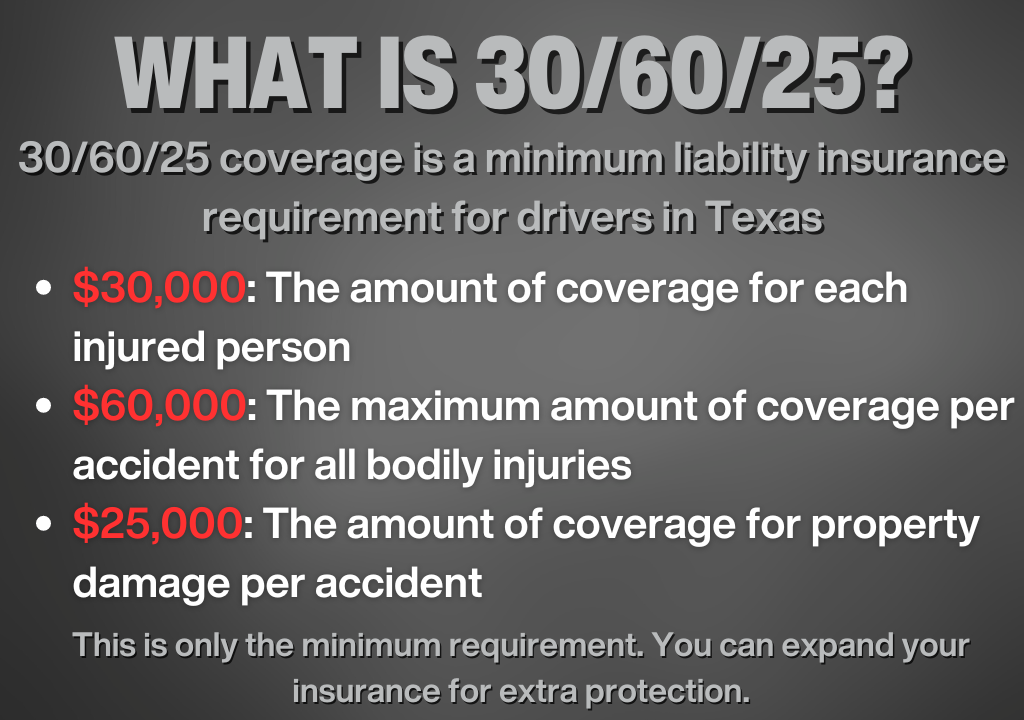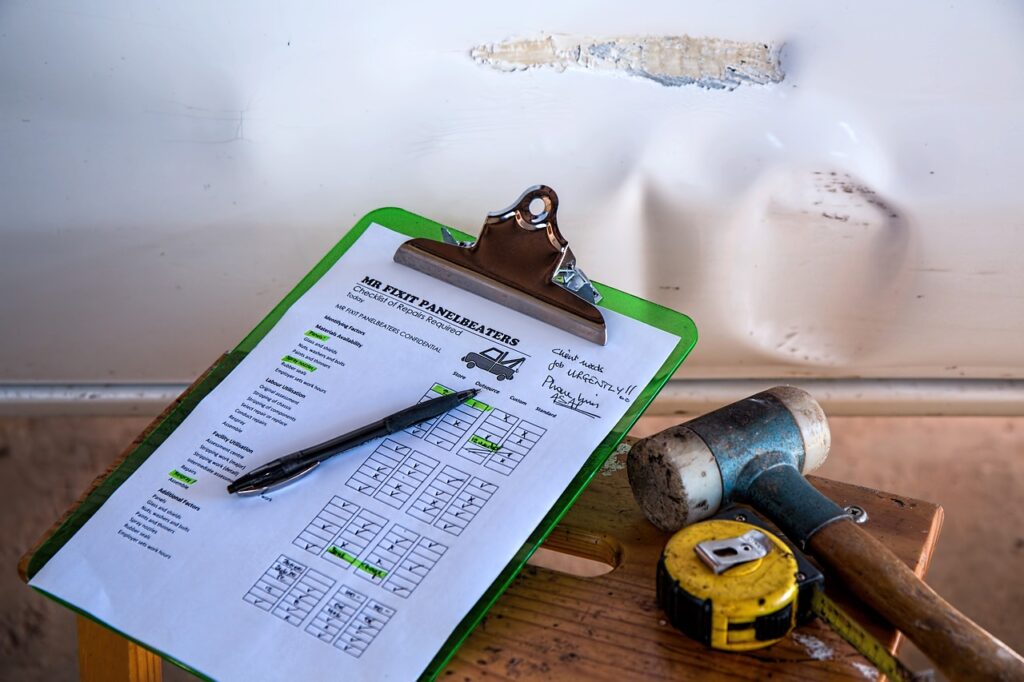Navigate Texas Car Insurance: Must-Know 2025 Requirements
Steering Through Texas Car Insurance Regulations
A 2025 Roadmap to Legal Compliance
When you’re driving on Texas roads in 2025, it’s essential to know the rules. To stay on the right side of the law and meet the state minimum requirements, you need car insurance. This is grounded in the fact that Texas law mandates every driver to demonstrate financial responsibility for accidents they cause — most often achieved by securing a minimum coverage car insurance policy.
The Critical Importance of Staying Insured in the Lone Star State
In Texas, if you get caught driving without insurance, it’s more than just a headache. It’s against the law, and it can hit your wallet hard. Not only could you face fines, but you might also see your car insurance prices shoot up and may also lead to license suspension. Plus, if there’s an accident, you could be stuck paying for all the damage out of your pocket. That’s why having at least the minimum liability insurance policy in Texas is critical for your peace of mind and pocketbook.
Mapping Out the Coverage Terrain
Understanding the Basic 30/60/25 Coverage
The 30/60/25 coverage is like the basic recipe for Texas auto insurance. Just like you need a good base for a solid home, this coverage is your foundation for being on the road. Not only is it a requirement by law to meet these coverage minimums, but it’s the essential financial protection layer shouldering the costs in the unfortunate event of a road mishap. It means your insurance will help pay up to $30,000 for each injured person, up to a total of $60,000 per accident, and $25,000 for property damage per accident. It’s there to help cover other people’s bills if you cause a crash, but it won’t cover your own car or injuries.

Additional Auto Protection Options in Texas
Besides the base coverage, you’ve got extra options to safeguard your ride in Texas. Think of these like a safety net for different worries. If you bump into something, Collision coverage steps in. For unexpected stuff like theft, vandalism, or hail, there’s Comprehensive. If your car’s worth more than you owe, Gap coverage can be a true lifesaver. Got hospital bills or lost wages from an accident? Personal injury protection (PIP) is there for that. And if your car’s in the shop or you’re dealing with a breakdown, Rental car reimbursement and Roadside assistance have your back. Last but not least, if another driver has no insurance or not enough, Uninsured/Underinsured coverage is your shield.
Navigating Cost Factors and Savings
The Impact of Texas Laws on Your Premiums
Texas laws shape how much you pay for car insurance coverage. They make sure rates are fair and reflect what’s at stake. If you’re a smooth driver with a clean record, you’ll probably pay less. But if you’ve had a few bumps on the road or you’re young and new to driving, your rates might be higher. The car you drive counts too—a sturdy, safe car could cost less to insure compared to a flashy speedster. Keep in mind, the average premium for minimum liability insurance in Texas is $760 annually, highlighting the influence of both personal factors and your zip code on insurance costs.
Smart Ways to Lower Your Car Insurance Costs
To save some cash on car insurance in Texas, try these smart moves. If you can handle a bigger “what if” cost, raise your deductible. Got more than one car or different kinds of insurance? Bundle them up for a discount, as many insurers reward customers who consolidate their policies. Keep your driving record squeaky clean and think about a safe driving course – evidence of responsible driving can lead to further premium reductions. Lastly, don’t be shy to ask about discounts for things like having anti-theft tech in your car. Every little bit helps to lower your bill, and insurers often provide price breaks for security enhancements.
Your Policy Compass
Mandatory Coverage and Minimum Limits for Texans
If you’re hitting the road in Texas, the law insists on certain car insurance minimums. You must have at least 30/60/25 coverage. That’s the magic number to make sure you can cover the costs if you’re in an accident. It means $30,000 for each hurt person, up to $60,000 per accident, and $25,000 for property damage. Remember, this is just the starting point. Go higher if you can, to be extra safe.
Deciphering Optional Coverages and Endorsements
Got your mandatory insurance sorted? Great! Now, think about the extra coverages that give more peace of mind on Texas roads. These are not required by law, but they can save you from dipping into your savings after an unforeseen incident, including handling any potential rental car fees if you’re involved in an accident. Optional coverages include things like Collision, for car repairs after a crash, or Comprehensive, for mishaps like theft or storms. There’s also towing and labor, rental car costs, and protection against drivers without enough car insurance. Pick what fits your life and your wallet.

Safeguarding Your Journey
What’s Included in Your Liability Plan?
Your liability plan in Texas covers the basics if you cause an accident. This means, if you’re at fault, your insurance pays for the other person’s car repairs and medical bills, up to your policy’s limits. It also steps up to cover legal fees if there’s a lawsuit. But remember, your liability insurance doesn’t take care of your own injury costs or car repairs—that’s where other types of coverage come in.
Supplementing Your Coverage for Full Protection
Think of full protection like a top-notch helmet for a motorbike ride; it covers more than the basics. In Texas, this means adding collision and comprehensive to handle repairs to your car, no matter who’s at fault. Personal injury protection for your medical bills and uninsured motorist coverage are also handy to have. These aren’t just extras—they’re about making sure a car problem doesn’t turn into a money crisis. So, gear up with the coverage that matches your life and your car’s value.
Stay on Course With Claims and Disputes
Handling Insurance Claims Smoothly in Texas
When you need to file a claim in Texas, knowing the steps helps things go smooth. Start by telling your insurer about the accident—quick! They usually give you 15 days to send in the details. Snap pictures of any damage and gather up repair quotes. Then, your car insurance company checks out your claim. They might ask for more info, so keep everything handy. If all goes well, they’ll sort out what they owe. And if you’ve got questions, don’t be shy. It’s their job to explain things clearly.
Your Rights When Dealing With Insurance Denials
If your car insurance claim gets a “no” in Texas, you’ve got rights. The company must tell you why, in writing. If it feels off, you can complain. They can’t say no just based on your race, color, faith, or where you’re from. Nor can they for your age, gender, marital status, where you live, or disability—unless they can prove a bigger risk. And they can’t jack up your rate just because of your credit score. If the process feels unfair, you can challenge them. Sometimes, you might even need legal muscle to get things right.
FAQ: Texas Car Insurance Queries Answered
Are Texas’ Minimum Requirements Sufficient for Your Needs?
The minimum might not cut it if you get into a big accident or if your car is worth a lot. With basic coverage in Texas, you could end up paying from your pocket if costs go beyond your policy limits. So, think about your needs and your wallet to decide if you should bump up your coverage.
If my car is impounded or towed, do I need insurance to get it released?
Yes, and things get even more complicated if you were towed for not having insurance. You’ll have to get an insurance policy and pay the towing company’s lot charges. The best option is to keep your auto insurance current so the headache of impoundment doesn’t get more painful.
How Do You Prove Financial Responsibility in Texas?
In Texas, proving you can handle the cost of accidents is a must. You do this by carrying your car insurance card or showing it on your phone. Cops might ask for it during a stop or after a crash. Without it, you could face fines or even lose your driving rights. So, always have your proof of insurance and registration ready to avoid trouble.
Header Image by Pexels from Pixabay
Auto Repair Image by Steve Buissinne from Pixabay
All we do is fight for injured victims. And we do not accept defeat.
(512) 996-6369
help@dfoxlaw.com
Address
206 W. Main Street #108, Ste B, Round Rock
TX 78664
